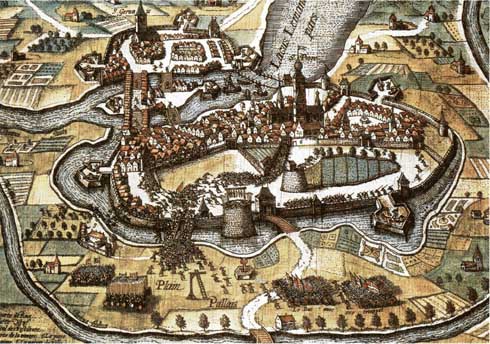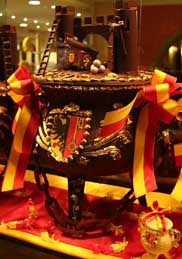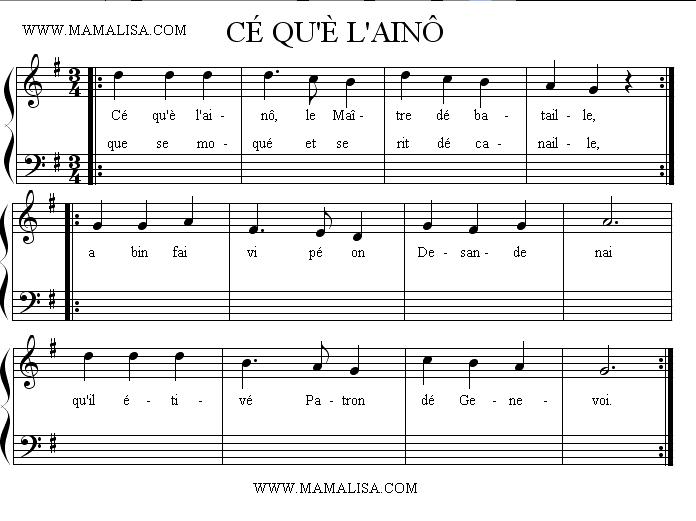Cé qu'è lainô
In the early 17th century, there were religious conflicts in Geneva between the Catholics (supported by the Duke of Savoy) and the Calvinist Reformers. One conflict was called l'Escalade - which is a French word meaning to scale walls. This conflict took place on the night of December 11-12 in 1602. The Duke of Savoy's army tried to raid the city of Geneva. When they tried to scale the walls of the city the citizens of Geneva impeded them.
There's a legend that one Genevan, Catherine Cheynel (mother of 14, referred to as "Mère Royaume") took a big cauldron of hot soup and poured it on the attackers killing one. This raised a ruckus, which in turn helped wake up the people of Geneva allowing them to defend their city.
This song is about L'Escalade. It's sung for the Fête de l'Escalade which is a holiday in Geneva that celebrates this legend and victory. People eat soup, kids go door-to-door in costumes singing Escalade songs and people get chocolate cauldrons filled with marzipan "vegetables" which they smash and eat.
The song "Cé qu'è lainô" was composed in 1603 following l'Escalade. The full song is 68 verses long, though today only about 3 or 4 verses are normally sung. This song is also considered the anthem of Geneva.

Cé qu'è lainô
The One Above
Escalade Song
Escalade Song
(Arpitan)
(English)
Cé qu'è lainô, le Maitre dé bataille,
Que se moqué et se ri dé canaille;
A bin fai vi, pè on desande nai,
Qu'il étivé patron dé Genevoi.
A bin fai vi, pè on desande nai,
Qu'il étivé patron dé Genevoi.
I son vegnu le doze de dessanbro
Pè onna nai asse naire que d'ancro;
Y étivé l'an mil si san et dou,
Qu'i veniron par là ou pou troi tou.
Y étivé l'an mil si san et dou,
Qu'i veniron par là ou pou troi tou.
Dedian sa man il y tin la victoire,
À lui solet en démure la gloire.
À to zamai son Sain Non sai begni!
Amen, amen, ainsi, ainsi soit-y!
À to zamai son Sain Non sai begni!
Amen, amen, ainsi, ainsi soit-y!
The One above, Master of battles,
Who mocks and laughs at the scoundrels,
Showed them well on a Saturday night
That He was the protector of the Genevans.
Showed them well on a Saturday night
That He was the protector of the Genevans.
They came on the twelfth of December,
On a night as black as ink,
It was the year sixteen hundred and two
That they came here a little too early*
It was the year sixteen hundred and two
That they came here a little too early*.
In his hand He holds victory
To Him alone remains the glory.
Forever may His Holy Name be blessed,
Amen, amen, well, so be it!
Forever may His Holy Name be blessed,
Amen, amen, well, so be it!
Notes
*They came in the middle of the night.
This song was written in the Genevan dialect of the Arpitan language. The Arpitan language is also called Franco-Provençal.



Thanks!
Thanks!
Thanks and Acknowledgements
The 2nd photo shows a chocolate cauldron that's eaten for the Fête de l'Escalade. The pic comes from Schutz on Wikipedia
Translated by Lisa and Monique.
Grant marci!


























